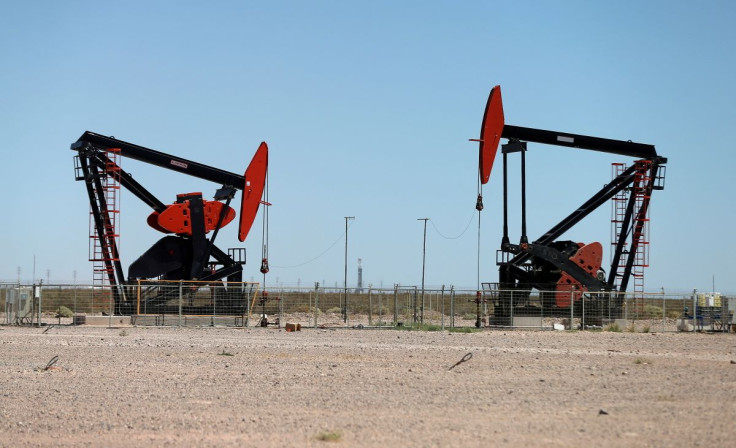Oil Prices Ease As EU Struggles To Seal Russia Import Ban

Oil prices eased on Tuesday as Hungary resisted a European Union push for a ban on Russian oil imports, a move that would tighten global supply, and as investors took profits following a recent rally.
Brent crude futures fell 22 cents, or 0.2%, to $114.02 a barrel by 0327 GMT, while U.S. West Texas Intermediate (WTI) crude futures slid 35 cents, or 0.3%, to $113.85 a barrel. Both benchmarks gained more than 2% on Monday, following a 4% jump on Friday.
EU foreign ministers failed on Monday in their effort to pressure Budapest to lift its veto of a proposed oil embargo on Russia following the country's invasion of Ukraine. An embargo would require approval from all EU nations.
Still, overall sentiment on prices remained bullish amid optimism about demand recovery in China as it looks to ease COVID restrictions that have hurt its economy, analysts said.
"Shanghai's plans to relax the COVID-19 lockdown in stages raised expectations of a demand revival in China," said Hiroyuki Kikukawa, general manager of research at Nissan Securities.
"With the U.S. approaching the start of the summer driving season amid tight fuel supply, oil prices are expected to head toward $120 a barrel," he said.
Shanghai set out plans on Monday for the end of a painful COVID-19 lockdown that has lasted more than six weeks, heavily bruising China's economy, and for the return of more normal life from June 1.
The news outweighed disappointing data from China on Monday, with industrial output and retail sales falling in April at the fastest in more than two years, missing expectations.
On the supply side, U.S. producers are ramping up in order replenish inventories that have dwindled in the wake of Russia's war on Ukraine - which Moscow calls "a special military operation" - and recovery from the COVID-19 pandemic.
Oil output in the Permian in Texas and New Mexico, the biggest U.S. shale oil basin, is due to rise 88,000 barrels per day (bpd) to a record 5.219 million bpd in June, the U.S. Energy Information Administration (EIA) said on Monday.
Still, stockpiles in the Strategic Petroleum Reserve (SPR) fell to 538 million barrels, the lowest since 1987, data from the U.S. Department of Energy showed on Monday, underlining tight supply.
© Copyright Thomson Reuters 2024. All rights reserved.




















